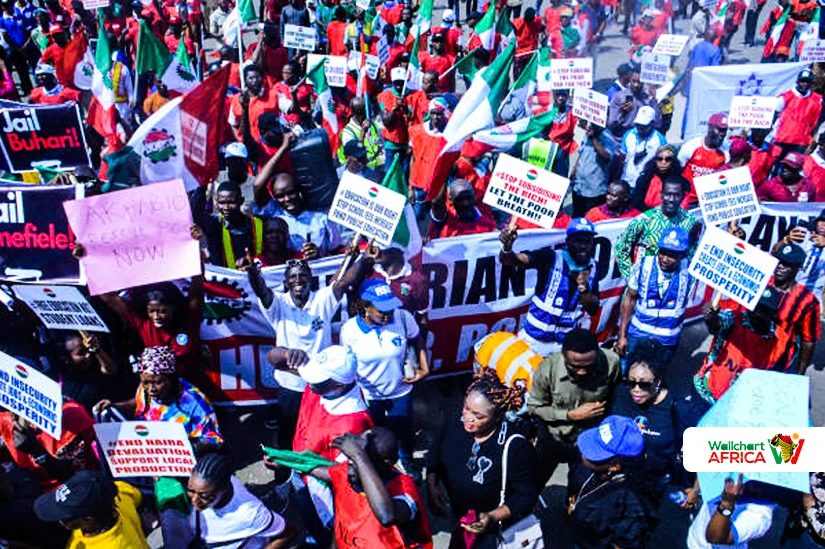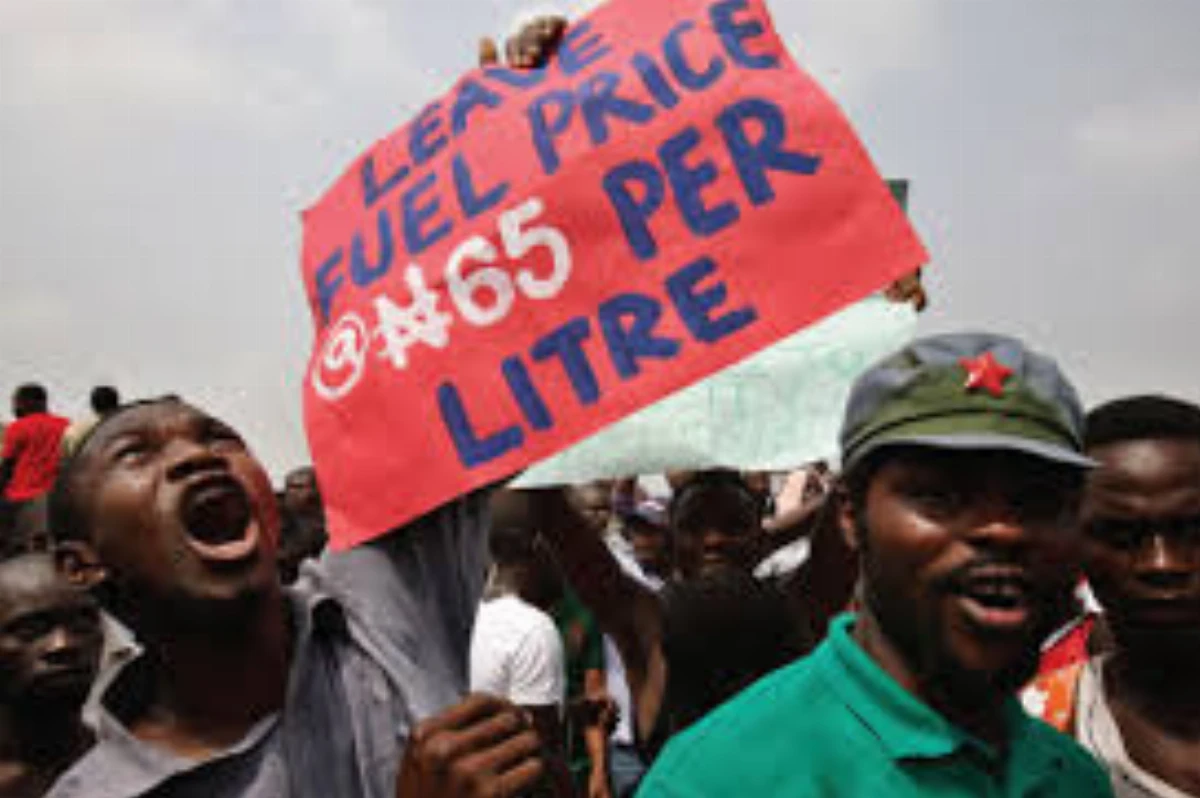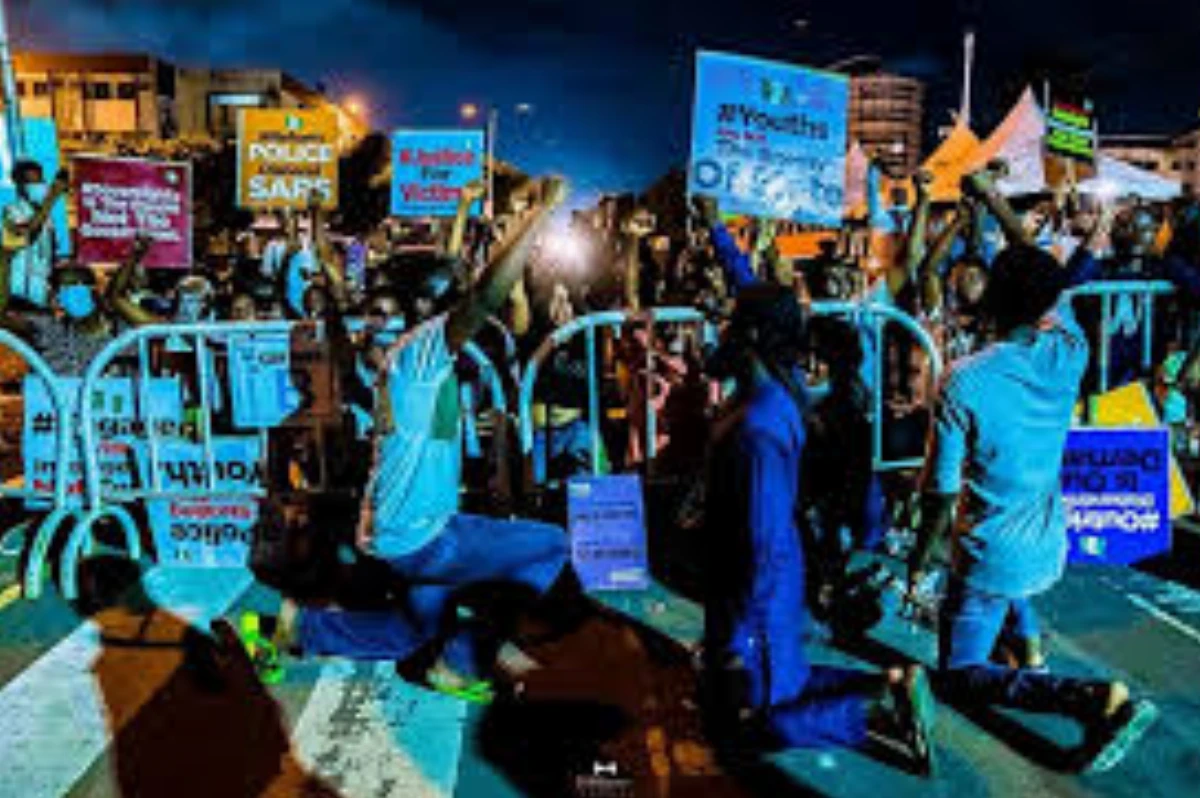Explore the key factors driving the upcoming protest in Nigeria, including economic challenges, political grievances, and social issues. Learn about the historical context and government responses.

Nigeria is once again on the brink of a significant civil protest, capturing the attention of both local and international observers. The protest is scheduled to take place in major cities across the country on August 1st, 2024. This upcoming protest is driven by many pressing issues simmering beneath the surface of the nation’s socio-political landscape.
From economic hardships and political grievances to social injustices and human rights violations, Nigerians are mobilizing to voice their discontent and demand meaningful change.
Understanding the context and reasons behind this protest is crucial for several reasons. Firstly, it provides insight into the underlying causes of the unrest, highlighting the challenges faced by ordinary Nigerians.
Secondly, it helps in comprehending the broader socio-political dynamics at play, offering a clearer picture of the nation’s current state. Lastly, being informed about these developments is essential for those wishing to support the movement or stay safe during the demonstrations.
Historical Context of Protests in Nigeria
Nigeria has a long history of protests, often arising from deep-seated socio-economic and political issues. The nation's journey toward democracy has been punctuated by numerous significant protests that have shaped its political landscape.
Previous Significant Protests and Their Impact
June 12 Protests (1993)

The annulment of the presidential election, believed to be won by Moshood Abiola, sparked widespread protests and civil unrest. These protests played a crucial role in the eventual transition from military to civilian rule in 1999.
Fuel Subsidy Protests (2012)

Known as "Occupy Nigeria," these protests erupted after the government removed fuel subsidies, causing fuel prices to skyrocket. The demonstrations led to a partial reinstatement of the subsidy and highlighted the power of collective action in influencing government policy.
End SARS Protests (2020)

Sparked by the brutality of the Special Anti-Robbery Squad (SARS), these nationwide protests called for the disbandment of the unit and broader police reforms. The movement brought international attention to police violence in Nigeria and pressured the government to announce the dissolution of SARS. Hoodlums or political thugs hijacked this protest with ulterior motives, and a lot of lives and properties were reported lost to this protest.
Reasons for the August 1st Protest
The upcoming protest in Nigeria is driven by a confluence of critical issues that have created widespread discontent among the population. The country's current economic situation, hike in fuel prices, and inconsiderate government decisions, among many others, contributed to the growing frustration and urgency for change.
Inflation
Nigeria has been grappling with persistently high inflation rates, which have eroded the purchasing power of ordinary citizens. The prices of essential goods and services, including food, housing, and healthcare, have soared, making it increasingly difficult for families to make ends meet. The rising cost of living has disproportionately affected low-income households, exacerbating inequality and poverty.
Fuel Prices
Frequent fuel price increases, often due to subsidy removals and fluctuations in global oil markets, have sparked widespread anger. Given that Nigeria is an oil-producing nation, citizens are particularly aggrieved by the high cost of fuel, which impacts transportation and the overall cost of goods and services. Previous protests, such as the Occupy Nigeria movement in 2012, were also driven by fuel price hikes, underscoring this issue's sensitivity.
Government Policies
Many Nigerians are dissatisfied with government policies that they perceive as ineffective or detrimental to their well-being. Issues such as inadequate infrastructure, poor public services, and mismanagement of resources have led to a loss of faith in the government’s ability to address the nation’s problems. Policy decisions that appear disconnected from the realities of everyday life contribute to the growing disenchantment.
Corruption
Corruption remains a pervasive problem in Nigeria, undermining trust in public institutions and governance. High-profile corruption scandals and the misappropriation of public funds have led to widespread cynicism and anger. Citizens are demanding greater transparency and accountability from their leaders.
Government Response
As the upcoming protest in Nigeria approaches, the government’s response has been a mix of official statements, actions, and measures to address or suppress the demonstrations.
Government’s Stance on the Protest
The Nigerian government has generally expressed a stance of caution and control regarding the upcoming protest. Officials have acknowledged the right of citizens to express their grievances but have emphatically talked down the protest and warned people not to participate. The government’s position often balances recognizing legitimate concerns with a focus on preventing disruptions to public order and economic activities.
Measures to Address or Suppress the Protest
In response to the protest's emergence, the government has initiated dialogues with traditional rulers and civil society groups. These discussions aim to find common ground and address key concerns. Negotiation efforts may include promises of policy changes, economic relief measures, or reforms.
Security Concerns by the Police, NSCDC, and the Army
The security operatives have voiced their concerns and supposed intelligence regarding the intended hijacking of the protest. They also required individuals or organizations involved in organizing the protest to submit their information. However, protesters seem not to be perturbed by this, knowing the intent was to deter participation or weaken the organizational capacity of protest groups.
Public Relations and Media Strategy
The government employed media campaigns and press briefings to influence public perception of the protest. This included messaging that framed the protest as a challenge to national stability.
Official communications have also focused on portraying the government’s actions as responsive and responsible, aiming to build public support for their stance while discrediting the protest’s motives or organizers.

